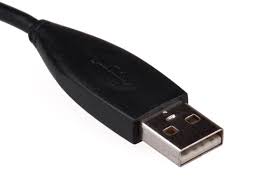USB Printers¶

Getting the printer object:
from escpos.connections import getUSBPrinter
printer = getUSBPrinter()(idVendor=0x1504, # USB vendor and product Ids for Bixolon SRP-350plus
idProduct=0x0006 # printer
inputEndPoint=0x82,
outputEndPoint=0x01)
printer.text("Hello World")
printer.lf()
As you might have noticed there are a few parameters used above for connecting to your USB escpos printer that you might not be aware of. USB Printers require USB vendorID, productID, interface number, input endpoint id, output endpoint id to create a connection. Read on to see how to get these values for your printer and create a printer object for a USB printer
Getting vendor id and product id¶
On Unix like OSes, make sure your printer is switched off and run lsusb command to see a list of devices with their product id and vendor id:
$ lsusb
Bus 004 Device 001: ID 1d6b:0003 Linux Foundation 3.0 root hub
Bus 003 Device 008: ID 0cf3:0036 Atheros Communications, Inc.
Now switch on your printer and run lsusb again:
$ lsusb
Bus 004 Device 001: ID 1d6b:0003 Linux Foundation 3.0 root hub
Bus 003 Device 003: ID 1504:0006
Bus 003 Device 008: ID 0cf3:0036 Atheros Communications, Inc.
The second device in this list is the thermal printer. I know this because if I switch off the printer and run lsusb again that line will disappear. The vendor id and product id are in base16 format. That means the vendor id for my printer is 0x1504 and product id is 0x0006
Getting interface id¶
Following this you can get the interface number for your printer with the following command (Note that I used the vendorid 1504 and productid 0006 for my printer that I discovered in the previous section):
$ lsusb -vvv -d 1504:0006 | grep iInterface
iInterface 0
So the interface number for my printer is 0, since the module uses a default interface number 0, I do not need to specify this value in my constructor
Getting input endpoint¶
Again you can use the lsusb to get the input endpoint as follows:
$ lsusb -vvv -d 1504:0006 | grep bEndpointAddress | grep IN
bEndpointAddress 0x81 EP 1 IN
That gives me the input endpoint number 0x81, this is also the default for the module.
Getting output endpoint¶
You can now use the lsusb to get the output endpoint as follows:
$ lsusb -vvv -d 1504:0006 | grep bEndpointAddress | grep OUT
bEndpointAddress 0x01 EP 1 OUT
That gives me the output endpoint number 0x01, this is also the default for the module.
Creating the printer object¶
Using the above values we can now create a printer object and start talking to our printer:
from escpos.connections import getUSBPrinter
printer = getUSBPrinter()(idVendor=0x1504, # USB vendor and product Ids for Bixolon SRP-350plus
idProduct=0x0006 # printer
inputEndPoint=0x82,
outputEndPoint=0x01)
printer.text("Hello World")
printer.lf()